Welcome to the sixteenth installment of More Than Words, where I take queer words of all sorts and smash them apart and see what makes them tick. Every week I’ll be dissecting a different word, trying to figure out where it came from, how it has evolved, where it might be going, and what it all means. It’s like reading the dictionary through a prism. Feel free to send word suggestions to [email protected].
Header by Rory Midhani
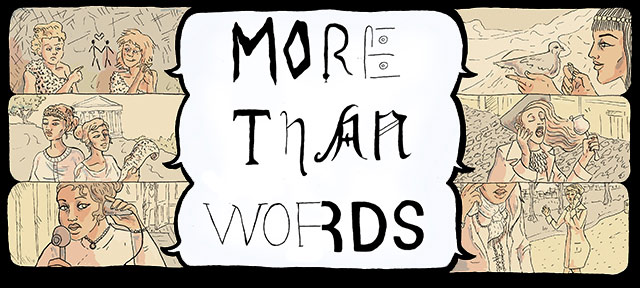
I know what time it was. My Facebook/Twitter/Instagram have all been feeding me delicious rainbow morsels for weeks (you all looked great, by the way). Now that the glittery dust has settled city to city, and we’ve all gone back to being prideful in more personal ways, I figured it might be a good time to examine what the word means to history — when it started puffing its chest out, how it earned its capital P, where the lions come in.
When I say “pride” means a whole pack of things, I’m not even talking about self-definition or You Doing You or anything else subjective — its actual dictionary definition encompasses nouns and verbs and deadly sins, and its history reflects that. “Proud,” pride’s predecessor (say that 10 times fast! I’ll wait) stems, way back, from the Latin prodesse (“to be useful”), a construction built from pro (“for” or “before”) and esse (“to be”). From there we get to Late Latin’s prode (“profitable”), which became Old French’s prud (“brave; valiant”). The British took prud and added a sense of arrogance to go with the good stuff — possibly because that’s how the Norman knights who called themselves prud appeared to the British — and thus the original modern English sense of “proud” was born. The jump from “proud” to “pride” involved a few intermediaries, including the late Old English pryde and the Kentish prede. “Pride” was first spelled and pronounced the contemporary way in Mercian, an Anglo-Saxon subdialect currently most famous for “inspiring” J.R.R. Tolkien (who borrowed a lot of it wholesale when designing the language for the Kingdom of Rohan).
This is normally the part of the column where I turn to the Oxford English Dictionary and let it lead me on a madcap adventure through space and time, during which I somehow trace out a historical trajectory for whatever word. But, most likely as punishment for my hubris, “pride” is seriously all over the place – I can’t find a rhyme or reason for its distribution. I did, however, pick up on some foreshadowing going on in the OED’s helpful examples. An chronological sampling is below.
“Ouere done pride makythe nakid syde.” – Anonymous, How The Good Wife Taught Her Daughter (1460). (translation: “Overdone pride makes naked side.”)
“Beholdynge Mars how wonderly he stode, on a whele top with a lady of pryde Haunced aboute.” – Stephen Hawes, The Pasttime of Pleasure, 1509.
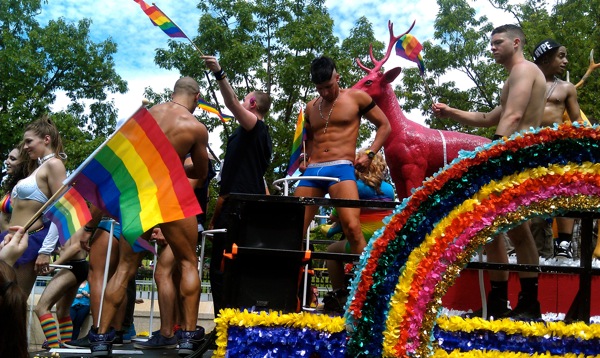
“PRIDE” ALSO MEANS “THE SPLEEN OF A DEER” [NOT KIDDING). FOUR FOR YOU GUYS {VIA BETWEEN V LINES]
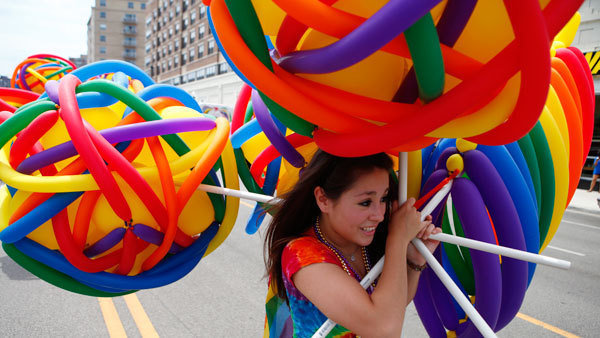
HELP!! MY BRAIN IS A BRAINBOW! [VIA CHICAGO TRIBUNE]
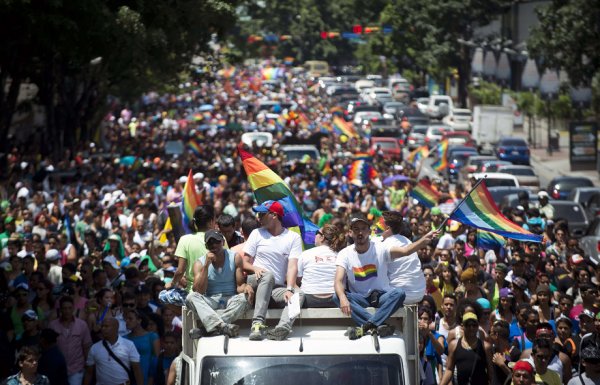
I KNEW YOU WERE TRUBLE. [VIA LEO RAMIREZ/AFP]
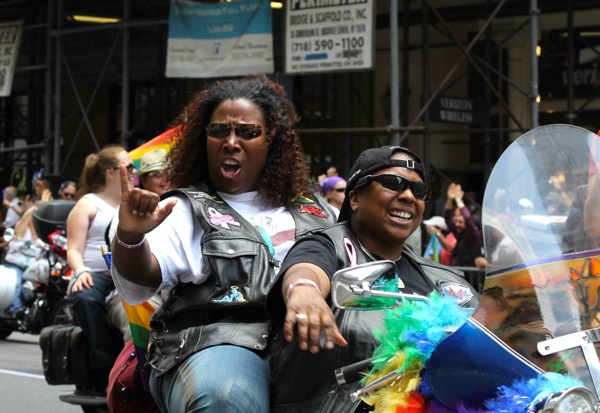
*ON BIKEBACK [VIA LORI E. SEID]
No one picked up on this foreshadowing until around 1970, though. When it first started, the mainstream gay rights movement was more whispery than overtly prideful. “Before Stonewall, gay leaders had primarily promoted silent vigils and polite pickets,” remembers policeman and activist Fred Sargeant. “Since 1965, a small, polite group of gays and lesbians had been picketing outside Liberty Hall [in Philadelphia]. The walk would occur in silence. Required dress on men was jackets and ties; for women, only dresses. We were supposed to be unthreatening.”After Stonewall broke the skin, gay and lesbian groups from major cities, including the Gay Liberation Front, the Lavender Menace, and various university organizations, began to organize a bigger, louder demonstration. This became the Christopher Street Liberation Day Parade, with “no dress or age regulations” and, after much discussion, an official chant: “Say it clear, say it loud, gay is good, gay is proud.” This march, which happened on June 28th, 1970 — a year after the Stonewall riots — is now considered the first LGBT pride parade.
Most of the world didn’t start calling it that until later, though. At the time, the marches and associated events, which started popping up most major cities, were known as “Gay Liberation Marches” or “Gay Freedom Marches” (this History Project timeline, of Boston-area youth group events from the past few decades, proves just how rarely “pride” made the copywriting cut). Although the notion of identity-based pride had been slowly gaining momentum throughout the sixties thanks to the Black Pride movement, three activists worked particularly hard to bring the idea to the gay community. Robert A. Martin (aka Stephen Donaldson, aka Donny the Punk) was a founder of Columbia University’s Student Homophile League in 1968. He recognized the need for an antidote to gay shame and found the answer in the Columbia Athletic Department, who used to brag about their team, the Lions, by yelling “Pride of Lions” at all the football games. Voila! Gay pride.
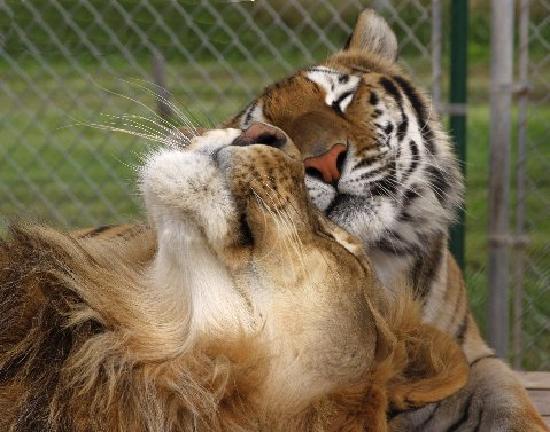
NO ONE CAN TELL THEM WHO TO LOVE [VIA TRIPADVISOR]
By now, of course, Pride has been canonized, capitalized, and endorsed by the White House. It’s a common and unspecialized word, it’s only one syllable, and it doesn’t seem like a likely candidate for controversy. And yet “pride” is — like so many words in our movement — in the middle of a fraught and double-edged process of reclamation. Some people aren’t proud that that “the first rebellious pride” has evolved into “a multi-million dollar international party;” meanwhile, way at the other side of the rainbow, others are embarrassed by the nudity. “Pride” is dialed up from shame, for sure, but is it dialed down from liberation? Maybe it’s time to dive back into those many definitions and remember the various emotional cornerstones the word was built on, back when it was still a (not-so-)humble lowercase. Maybe, for once, we should try to nail down what it means to all of us together.


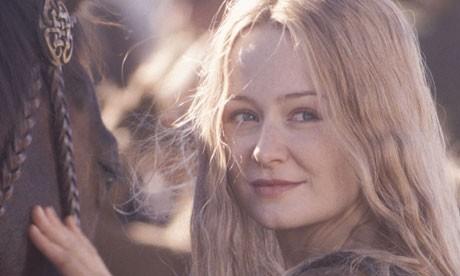

Interesting read; there was some controversy at Dublin Pride this year, somewhat related. There’s always been speeches from rights and activist groups at the end of the parade and the committee decided that this year they weren’t going to do that, and keep it as a party/celebration. After a lot of protesting and debating they agreed to let people speak (can anyone else chip in about how that went? I had to leave as soon as the parade ended) but I was surprised how many people agreed that it should just be a (corporate sponsered) party and didn’t seem to recognise the importance of Pride as a mouthpiece for activism.
Wasn’t able to be in Dublin for the parade but most of my mates seemed to think it went over well. Its hard to call because pretty much everybody in my life would think it inexcusable to try and sideline the activist groups at Pride. That’s what its about.
It makes me really sad when pride events forget their roots. This was Dublin’s 30th year. The first march was a protest, after a young gay man was murdered, his 2 killers were left off with ridiculously lenient sentences and their community cheered and celebrated. A small group marched through Fairview to protest (this was 10 years before homosexuality was decriminalized in Ireland)
THIS is what I’m proud of. The whole reason I want to celebrate every year is because of brave, kickass queers in our history that stood up and were counted. 30 years ago, the battle in Dublin was decriminalization and protection from violence. Now its marriage equality, trans* recognition, dealing with homophobic bullying in our schools. If pride isn’t about rallying support for these causes then what is the point?
Javiera Mena <3
Fascinating as always. Can’t wait for the next article!!
very good post i like the photos, i like latin rock
http://www.cancionromantica.com/